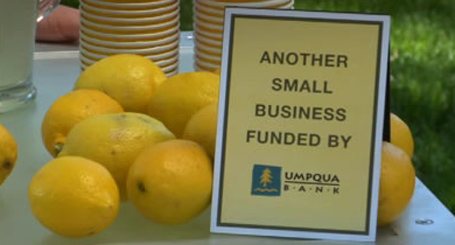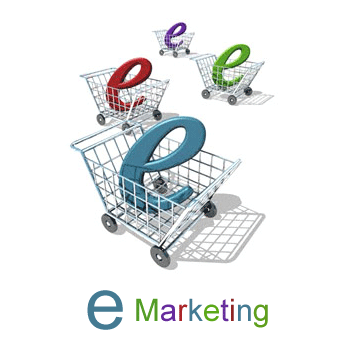
Entrepreneurs: I’ve worked with entrepreneurs for more than 25 years, and most of the successful ones have created and developed their products on their own and love being independent. “Being my own boss” is the answer I usually get when I ask them what they like best about being an entrepreneur.
But in fact, successful entrepreneurs are not Lone Rangers — which, for inexperienced entrepreneurs, should be regarded as a good thing. I’ve talked to more than 100 successful entrepreneurs over the past 10 years, and they frequently don’t have a lot of business management experience, don’t have any more money than the average person and typically have never tried to introduce a product before.
The key moment in their entrepreneurial process has been when they recognized their shortcomings and sought help from other people. That help is exactly what they need to succeed, and it can come in hundreds of forms, such as these:
A manufacturer willing to extend dating on orders
An industry connection who helps you fund your initial production run
A retailer who heavily promotes your product at its expense
You should think about the kind of help you will need right at the start, before you even begin to introduce a product to market. If you can prototype and make your product at home, you can probably survive on your own until you’re ready to sell. But most entrepreneurs have products that require a little more investment upfront, and they could go broke if they wait too long to get experienced advice. Not only that, but getting help early will prevent a lot of mistakes in creating your product, and this will help you save money for the crucial tasks that lie ahead.
Teaming Up for Success [Entrepreneurs]
Author: Ethan Theo
Abe WalkingBear Sanchez is an International Speaker / Trainer / Consultant on the subject of cash flow / sales enhancement and business knowledge organization and use. Founder and President of www.armg-usa.com, WalkingBear has authored hundreds of business articles, has worked with numerous companies in a wide range of industries since 1982 and has spoken at many venues including the Shakespeare Globe Theater in London.
Kiddy Entrepreneurs

Springwise: Umpqua, an Oregon-based bank, recently launched something similar. Their Lemonaire campaign is aimed at helping ‘really small entrepreneurs’ start their first business: a lemonade stand. After completing an application, children can pick up a free Umpqua Lemonade Starter Kit. The kits include cups, napkins, a sticker, table cover, small business guide (‘How to Become a Lemonaire’) and USD 10 start-up capital. No purchase necessary, but children must be under 13 to qualify.
Unlike Postbank’s Bizznizz, Umpqua’s Lemonaire is a temporary campaign, and the marketing aspect is key here. As quoted in the New York Times, a spokesperson for Umpqua explained: “We look for ways to hit people with a different mindset, and the lemonade stand is a perfect metaphor for what small business is about.” Time for other banks to follow Umpqua and Postbank’s lead, offering junior entrepreneurs the tools they need to earn and save? As long as children aren’t forced into labour, it’s a great way to teach them about business and money.
Facilitating kidpreneurs [Springwise]
Best Marketing Tactics
 Entrepreneur: Sometimes choosing the best marketing tactics is like going to a restaurant with an unlimited menu. Even entrepreneurs with tight budgets or small niche markets have dozens of options. And it can be hard to separate the best from the rest. A great tactic meets three criteria:
Entrepreneur: Sometimes choosing the best marketing tactics is like going to a restaurant with an unlimited menu. Even entrepreneurs with tight budgets or small niche markets have dozens of options. And it can be hard to separate the best from the rest. A great tactic meets three criteria:
It reaches your most qualified prospects.
It puts your message in the right context.
It gives you enough space/time to tell prospects what to do.
A business that specializes in cabinet refacing, for example, could run local cable TV spots during home-remodeling programs, including kitchen design shows. The spots would reach a qualified target audience in the appropriate context–when they were in the right frame of mind and most likely to be receptive.
Every great marketing tactic allows space or time for a call to action. This can be as simple as a toll-free number on a billboard or as complex as a direct-mail package with multiple offers. But an effective tactic always tells prospects what to do next. Can’t come up with a group of tactics?
Here’s a virtual smorgasbord of ideas to get you started. Outdoor media, Online advertising, Direct marketing, Broadcast advertising, Print advertising. Low-Cost Marketing Tactics would be Local Search, Podcasts, Blogs, Online Advertising, Expanding to Global Markets.
Smart Marketing Tactics to Boost Sales [Entrepreneur]
Neighbour + Navigate

Reveries: Google may be the world’s dominant search engine, but in South Korea it claims just 1.7 percent of all searches, reports Choe Sang-Hun. The search-engine leader in South Korea, with 77 percent of searches, is a home-grown site called Naver.com. Founded in 1999 by NHN, an online gaming company, Naver capitalizes on both the lack of Korean-language content online as well as the interest amongst Koreans to try to help each other out. In a nutshell, Naver is building its own database of information by letting its users answer each other’s questions.
So far, Naver has “accumulated a user-generated database of 70 million entries.” Cho In Joon, a dedicated user, explains the appeal: “When people I have never met thank me, I feel good … No one pays me for this. But helping other people on the internet is addictive.”
Neighbour + Navigate = Naver.com is what makes the online business tickes!
Naver.com [Reveries]
WOM Important For Business
 BizReport: With the increasing number of blogs and consumer review sites on the web many marketers are concentrating all of their efforts with these kinds of word-of-mouth efforts. And with 66 million adults sharing information online it is understandable why online may take precedence. However, marketers need to be just as aware of how their products and brands are faring offline. Though the online influencers may seem to have cornered the market on advice, the report explains that traditional advertising can actually influence the influencers.
BizReport: With the increasing number of blogs and consumer review sites on the web many marketers are concentrating all of their efforts with these kinds of word-of-mouth efforts. And with 66 million adults sharing information online it is understandable why online may take precedence. However, marketers need to be just as aware of how their products and brands are faring offline. Though the online influencers may seem to have cornered the market on advice, the report explains that traditional advertising can actually influence the influencers.
These influencers are 64% more likely to begin researching products online after hearing an ad on television or the radio. Compare that to the only 30% who begin researching products because of seeing online ads.
Offline as important as online WOM efforts [BizReport]